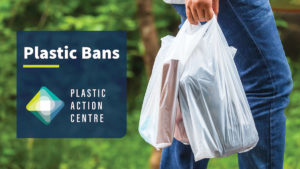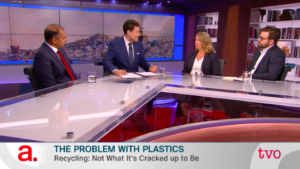- Plastic Bans
- International
- National
Costa Rica Has Banned Styrofoam — A Major Win for the Environment
As part of a national strategy to reduce plastic waste by 2021, Costa Rica has banned use of polystyrene containers. The new legislation prohibits import, marketing, and distribution of these containers across the country.
Full Article
By Erica Sanchez and Sushmita Roy
After rolling out a national strategy to drastically reduce plastic use by 2021 last year, Costa Rica is now taking its environmental protection efforts a step further by banning the use of styrofoam containers.
The new legislation, signed on Thursday, prohibits the import, marketing, and distribution of polystyrene containers — commonly referred to as styrofoam — throughout the country.
The legislation will go into effect in 24 months after it is officially published in the government newsletter, La Gaceta. The legislation is now awaiting President Carlos Alvarado’s signature, and then will be sent to the national printer for publication in La Gaceta.
Fines for violations range from $763 (446,200Costa Rican Colon) to $7,629 (4.46 million Costa Rican Colon). The government is required to aid companies in adapting to environmentally friendly containers before the law is fully enforced.
“This initiative is a giant step for public health, the environment, and the economy of the country because styrofoam generates great pollution,” said legislator Paola Vega.
Plastic is a major environmental pollutant in Costa Rica which accounts for only 0.03% of the earth’s surface but contains 6% of the world’s biodiversity. To preserve one of the most biodiverse countries in the world, plastic waste and other forms of pollution have to be controlled and kept in check.
In an effort to significantly reduce plastic pollution, President Alvarado ordered the restriction of the use of plastics in all the country’s public institutions last year. According to the guidelines set by the president, public school cafeterias, health system institutions, and prisons should avoid single-use plastics such as dishes, disposable cups, and cutlery.
Styrofoam, or expanded polystyrene, is one of the most widely used forms of plastic, mostly found in items like cups, take-out containers, and plates. Solid polystyrene is used to make everything from plastic cutlery to yogurt cups to DVD cases.
Although, styrofoam is technically recyclable, it can only be recycled if it is clean, un-dyed, and uncontaminated which is especially difficult since it is widely used to hold food.
Experts believe that it may take styrofoam anywhere between 500 and 1 million years to naturally decompose. Most of the product ultimately ends up in landfills and water bodies. Once consumed by microorganisms such as plankton or smaller fish, these contaminated particles enter the food chain, dangerously affecting our health.
Costa Rica’s Ministry of Health will take the responsibility of regulating the ban on styrofoam in the country and will impose sanctions if required.



